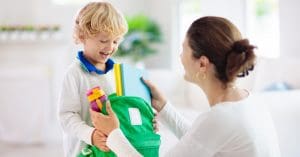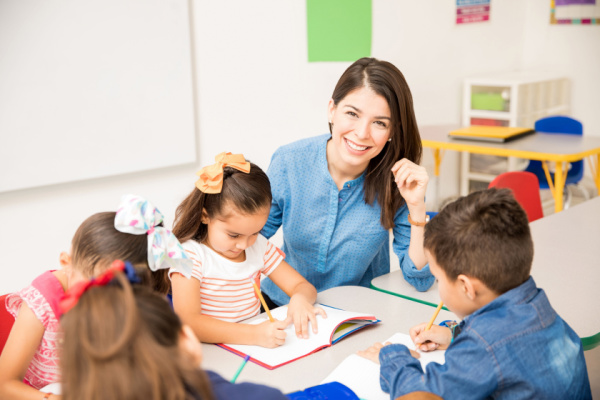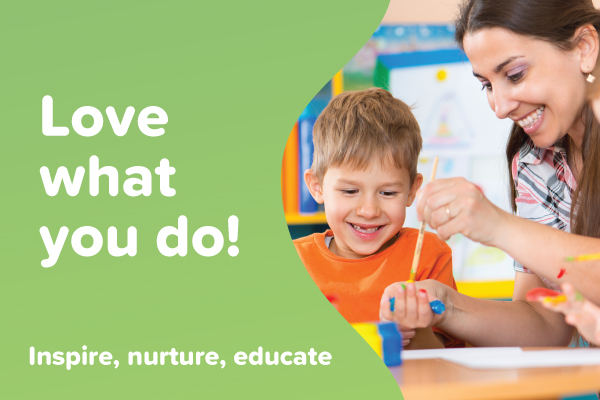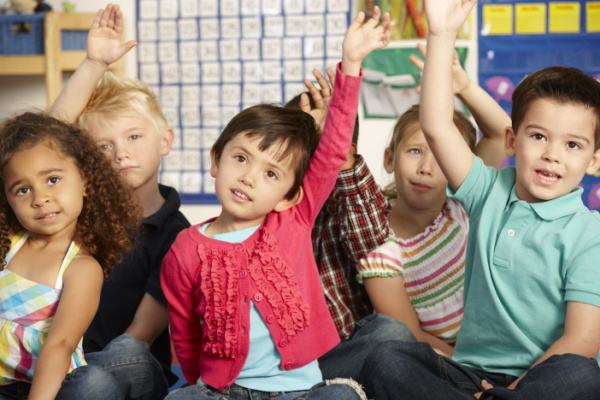From first words to first steps, the first birthday and a child’s first day in early learning, from the day children are born, we start taking note of milestones. While every accomplishment brings excitement, it can also make parents feel nervous or overwhelmed as a new stage begins for their child and for the family.
A child starting their journey in early childhood education and care is a notable milestone. Babies, toddlers and children may previously have spent most of their waking moments (and sleeping moments) in the presence of their primary carer which is generally mum or dad, as well as grandparents, step-parents and other notable adults in their family.
When a child commences their early learning a childcare centre, family day care or kindergarten, there is likely to be a period of adjustment for everyone. However, with the right know-how and support, this time can go smoothly and help lay a strong foundation for a child’s future.

Benefits of early childhood education for children and families
There are many reasons why a child may be starting early learning at any age. Both parents returning to work is a common reason. Creating a balanced routine to manage all of life’s commitments can often be supported by children attending early childhood education and care. Providing opportunities for children to grow and learn in an engaging environment is a great reason to explore early learning options.
The benefits of early learning extend to both children and families — let’s take a closer look at some of the key benefits:
A stimulating environment to learn and grow: While spending time with family has its own value, a high-quality early childhood education environment offers a dedicated play-based learning experience where children are supported to reach their full potential under the care of trained educators. The first 5 years of life are when the most crucial development of a child’s brain takes place. Educators in early learning work alongside families to ensure children get the very best start in life.
Enhanced school readiness: School readiness isn’t just turning the required age to commence formal schooling. It should be about a child’s social and emotional development, their independence, their ability to sustain engagement, care for their belongings and self-regulate. These are all developed gradually through early learning, helping children to be ready to get the most from primary school when the time comes.
Social engagement and interaction: Playing near or with peers is an essential element of healthy social development. Of course, parents cannot be expected to juggle life commitments while also facilitating playdates all day. This is where starting early learning can offer children a safe and nurturing space from which to work on their social skills.
Improved outcomes later in life: Research in Australia and overseas shows that attending early childhood education has positive short-term and long-term impacts on children’s learning and development. It is said that the single most impactful action we can take to improve children’s school outcomes is to increase access to early childhood education.
A regular routine: Human beings thrive on routines and schedules. Routines make us feel safe and secure, helping us to flourish. When you incorporate early learning into a family’s week, you gain the chance to give children a routine which will in turn set them up for success when it comes time to commence kindergarten and school.
Adjusting when children are starting early learning
The value of early childhood education for children is clear, so the next step is to support families in adapting to having their beloved children settle in to a new learning environment outside the family home. Maintaining children’s wellbeing and protecting their mental health when starting something new is essential.
Educators and parents can work together to achieve a smooth transition into early learning. Here a few tips to make it happen:
Communicate openly and effectively: Parents and educators need to develop a strong foundation of trust which can be underpinned by effective and open communication. Educators should encourage parents to be honest and open about how they are feeling. In turn, educators should be open and honest about what the child’s day will involve and keep parents in the loop. It also means if an educator tells a parent they will do something, like keep them updated, it’s important that they follow through to maintain that trust. Don’t forget to ask parents what a child likes to be settled — this will show parents that you are invested in their child and give them the confidence that they are being nurtured to the highest standard.
Show patience and understanding: Educators should be aware that for some families, children and parents may have never been separated before commencing early childhood education. Unsurprisingly, it can be a little scary at first. Educators should reflect this understanding by showing patience and offering support and reassurance to parents as needed. It might be a quick phone call or sending a couple of extra photos to show parents that a child is happy or has managed to fall asleep during those early days or weeks.
Involve parents in early learning: Involving parents in a child’s early childhood education experience will not only help them during the transition, but can offer continuity of care which benefits everyone. While parents are likely to have shared with educators what their child likes to help get to sleep, whether they like a dummy and so on, educators can share what children like at childcare with parents. This might be sharing a song or book the child loves so that parents can engage with this with children at home too. This also helps to marry the home and early learning environments which can be comforting to children.
Educational milestones: Starting kindergarten
Once children have experienced a quality early childhood education experience prior to kindergarten, the transition can be significantly easier. Early childhood educators help to prepare children for their next educational milestone, much like kindergarten teachers will focus on helping kindergarten children with their school readiness.
For children in early learning in many long day care settings, kindergarten may be a seamless transition within the same environment and familiar faces. For those starting kindergarten who might be new to early learning, educators can support families by following those same strategies centring around communication, trust, collaboration and understanding.
Working together for a positive start in early learning
Working together has been a vital contributor to adjusting through the pandemic’s changes and now in our transition to a new normal. It should also be a priority for educators and families to achieve optimal outcomes for children as they embark on their early learning journey.
Early learning plays an essential role in communities, families and children’s lives. At Practical Outcomes, we are committed to working together with the early childhood education sector to make a positive contribution now and into the future.



